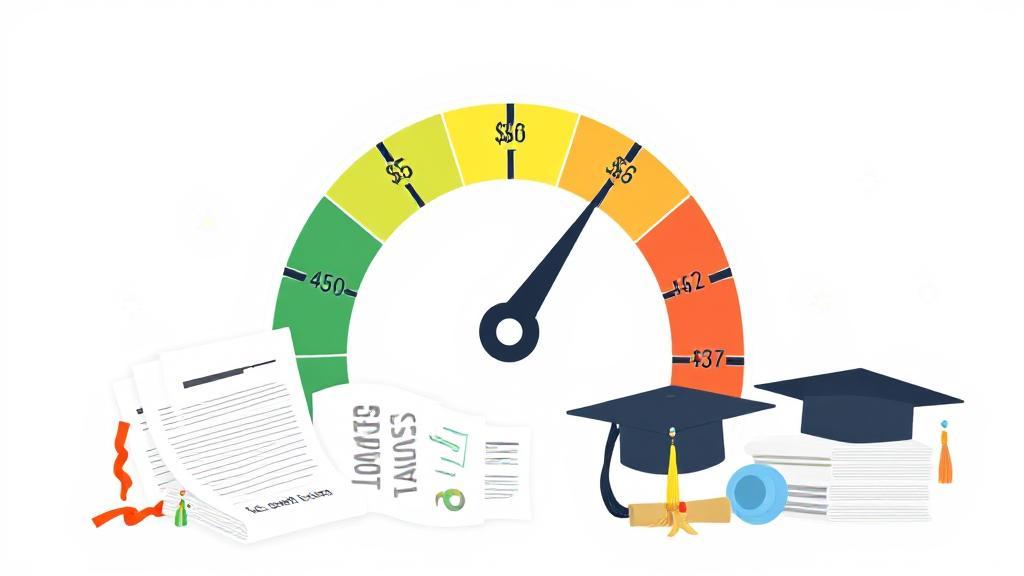Understanding Credit Scores and Student Loans
A credit score is a numerical representation of your creditworthiness, typically ranging from 300 to 850. It's calculated based on information in your credit reports from major bureaus like Experian, Equifax, and TransUnion.
Key Factors Affecting Credit Scores
- Payment History (35% of score): Timely payments boost your score, while late payments harm it
- Credit Utilization: The ratio of current debt to credit limit
- Length of Credit History: Longer histories generally contribute to higher scores
- Types of Credit: A mix of credit types can positively impact your score
- New Credit Inquiries: Frequent credit applications can lower your score
Positive Impacts of Student Loans
Student loans can benefit your credit score in several ways:
- Building Credit History: Often one of the first credit accounts for young adults
- Diverse Credit Mix: Adds to your credit portfolio as an installment loan
- Payment History: Consistent payments demonstrate responsible credit management
- Length of Credit: Can establish a longer credit history
"Payment history is typically the most important factor in credit scoring models." - MyFICO
Negative Impacts on Credit
Common Negative Effects
- Missed or late payments
- High debt-to-income ratio
- Multiple hard inquiries during loan shopping
- Default status
- Delinquency consequences
Managing Student Loans Effectively
Best Practices
- Set up automatic payments
- Monitor credit reports regularly through AnnualCreditReport.com
- Consider income-driven repayment plans if struggling
- Keep track of all loan servicers
- Communicate with loan servicers if difficulties arise
During School
Federal loans typically enter deferment during enrollment, appearing on credit reports without requiring payments. Private loans may have different terms.
Income-Driven Repayment Options
If you're struggling with payments, consider enrolling in an income-driven repayment plan. These plans can:
- Lower monthly payments
- Prevent default
- Maintain positive payment history
- Protect your credit score
Credit Recovery Strategies
If your credit has been damaged by student loan issues:
- Bring accounts current
- Make consistent payments
- Consider loan consolidation
- Document and dispute any errors
- Be patient with improvement
Long-Term Considerations
Responsible student loan management can help establish:
- Strong credit for future loans
- Better interest rates
- Improved chances for apartment rentals
- Enhanced job prospects
You can check your credit score for free on websites like Credit Karma or through credit bureaus. For additional guidance on managing federal student loans or dealing with default, visit the Federal Student Aid website.
Remember that student loans, when managed responsibly, can be a powerful tool for building credit. However, mismanagement can have long-lasting negative consequences. Stay informed about your loans, make payments on time, and address any issues promptly to maintain a healthy credit score.
